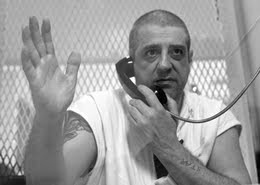The Guardian has a long article today on Dallas County District Attorney Craig Watkins: “Dallas chief prosecutor Craig Watkins fights injustice and racism“. It says:
He has won the release of 14 men serving long prison terms – one was freed after 27 years and another given a pardon after he died in prison – and is investigating hundreds more after concluding that Dallas was plagued by miscarriages of justice due to error, incompetence, racism and a culture among previous prosecutors of pursing conviction rates instead of justice.
and
The miscarriages of justice also raise the politically sticky issue of the death penalty. Texas executes more people than any other state by far. Watkins says that the pattern of exonerations mean it is inevitable that an innocent person has been executed.“I think that any reasonable person would have to reach that conclusion that someone has been executed for a crime they didn’t commit. We’d have to conclude that based on what we’ve seen over the last three years,” he said.














